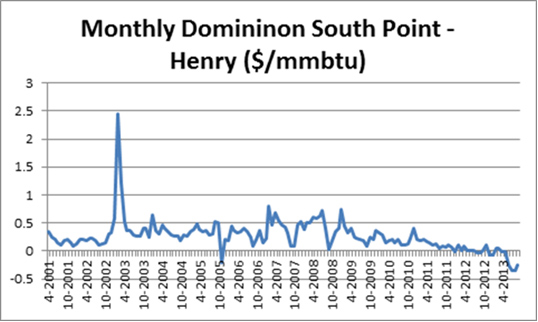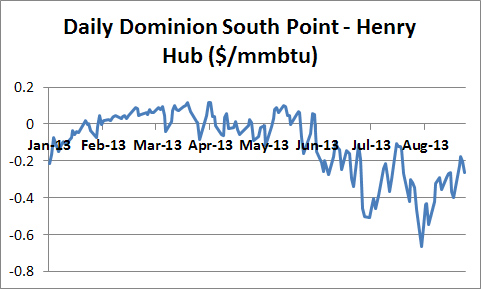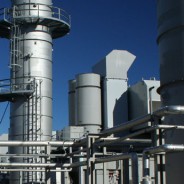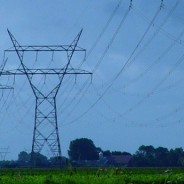EPA Proposed CO2 Pollution Standard – Gas more impactful near-term
EPA 2013 Proposed Carbon Pollution Standard for New Power Plants has made some news with much of the focus on coal. I believe the coal issue could be quite a smokescreen given the current economics of coal as it relates to gas. The coal limits are not likely going to impact much of anything over the next few years – perhaps not even in the next 5+ years. For the current impact the devil is in the details.
The natural gas limits probably could use more discussion for its near term relevance to prices for the consumer. For baseload gas plants, the limit is a non-issue (heat rate of 8.4 to 9.2 mmbtu/MW). However anyone with some/limited experience in the power markets realize the diversity of plants is needed not just on fuel perspective, but on a performance perspective. Load can be quite volatile and spiky. There is no need to build a baseload plant for a few hours of the year. Therefore the industry builds peakers to meet these events. Peakers attributes are a cheap unit that is not required to run a lot, therefore variable cost less important than fixed cost and that they need to turn on and off quickly.
Peakers have generally been very high heat rate units as the variable performance was not important. As noted in a paper I lead for the National Petroleum Council – ELECTRIC GENERATION EFFICIENCY – “The efficiency of a new power plant is largely a function of economic choice. The technology is well understood in order to produce a highly efficient plant. In order to produce higher efficiencies, higher pressure and temperatures are required. This increases the cost of the plant as special alloy materials will be needed.”
Therefore higher efficiency is not a leading attribute for a unit expected to run only a few hours in year. The additional expense of higher capital and higher operational cost is not worth it. Currently the average natural gas peaker heat rate in the country stands at 11.3 mmbtu/MW. There are new “peakers” being built at heat rates around 8, but they are not really being built for peaking operations as described above. They do cost more and therefore are anticipated to operate more often. This new carbon standard will first impact capacity markets. As an example the PJM capacity market is using a Cost of New Entry (CONE), the peaker attribute used to calculate CONE is at 10-10.3 mmbtu/MW. This will need to be changed, which will increase the cost of the CONE, therefore increase the cost of the capacity markets. The cost will go directly to the ratepayers.
I am not saying the standard is wrong in any way and that we should not be doing any risk mitigation for carbon. I am just pointing out the real impact of the standard that will likely be felt in the short-term. As long as society knows its cost and benefit and is in agreement than the standard is appropriate. Adding a CO2 hourly limit standard for peaking plants seems in-appropriate. They could have put in a daily limit for small gas plants so that they could still run a few hours and be within the standard. This small amount of CO2 emissions will not do much risk mitigation, but may add more cost than benefit.
In the long-term, this pretty much puts a nail in the coffin into new coal plants. The effective heat rate being asked of a coal plant which cannot be achieved even by a gas plant is 5.4 mmbtu/MWh. This essentially requires some sort of carbon capture and sequestration/storage (CCS). Being involved in CCS at AEP, the cost is extremely high and there are some serious risks. The risk/reward profile is not there for an investment in new coal plants even if gas prices were to be $6+/mmbtu. Once gas prices rise closer to $7+/mmbtu, partial capture could make economic sense as noted by the EPA. However the world of $7+/mmbtu prices currently seems far away.
Your Energy Consultant looking at the details for you,
614-356-0484
Gas Basis Phenomenon – Million Dollar Plus Question Will it Go On?
I am surprised not to hear more discussion on what I believe is one of the biggest market questions for both the natural gas and power markets in the US. The gas basis (spread between the locational point and henry hub) in the Midwest has gone negative in June and has stayed that way. In addition, the forward curves portray that outlook with the 2016 basis spread averaging a minus 40 cents for Dominion South Point.
Looking at the basis spread on a monthly level through time clearly shows historically the basis is a positive 30 cents with some extreme upside.
Viewing the spread on the daily basis shows the amazing change in June of this year.
There is much significance to this paradigm shift. Number one the coal competition lies in the Midwest not much in Texas. Henry Hub is the most quoted and reference gas price, but with this shift a $4 henry is not the same impact as it was just a year back for coal to gas switching. A years back you were talking a $4-4.5/mmbtu gas price to coal spread, now you are talking about $3.50-4/mmbtu. As I have noted before moving into the sub $4 range the competition heats up. Retirement and operational decisions of the coal plants in the Midwest becomes even more dire with such a negative basis outlook.
On a trading perspective, one can trade the basis. Trading basis removes the guess work of where the macro supply/demand of natural gas is going. In doing so, you somewhat mitigate some of the weather impacts. Arbritrages like this don’t come so often. The shift in basis and the continuation has resulted from infrastructure and related issues. Utica and Marcellus has clearly changed the dynamic of natural gas pricing in the US. The million dollar plus question is how long can this persist. Natural gas infrastructure development is rather quick compared to power development. Right of ways issues can be mitigated by building right on top of the existing path ways. Rates of returns can be captured with spreads such as a 40 cent differential to henry hub. I am surprised how long the forward curve goes out with such a discount. In fact the discount is seen every month even on the historically largest premium month February. Perhaps the trade you should not leave on the table….
Your Energy Consultant looking for a few good clients – if you are interested, please call me,
614-356-0484
Sacrifice Now and for Others … Tough Choice
Recent NPR story goes to the heart of the issue of sacrificing for the environment. Whether the country is Ecuador or the environmental concern, the issue is global warming to water pollution. There is some form of sacrifice that the environmentalists ask for and typically from others. On many levels, these are reasonable and self-beneficial sacrifices. However, in this case, I can empathize with Ecuador’s President, Rafael Correa. “Do we protect 100 percent of the Yasuní and have no resources to meet the urgent needs of our people, or do we save 99 percent of it and have $18 billion to fight poverty?””
The country is far from the standards of living seen in the western developed world. At the same time, the biodiversity in much of Ecuador is abundant and untouched. The price of oil has risen to such great levels of recent and could supply much needed capital resource to the country. The environmentalist would argue that sacrifices need to be made to protect this rich environment, yet no one seems to really see who is actually hurt by this sacrifice. The environmentalists in the west continue to live in the comfort of their homes with vehicles and roads not seen in Ecuador. The environmental fears presented in the end cannot outweigh the economic fact and reality of sub-standard living in Ecuador, and the real impact that further resource extraction could add.
In this case, the larger society gains can be seen and the environment sacrifice is likely inevitable. People who care would have the right to purchase the land, but as anyone selling something, it will be priced at the cost of the value it would add. This cost would seem too much for anyone or any country. The article noted they only were able to obtain $6.5 million.
This trade-off issue can also be seen in the US in the shale plays. Many environmentalists, who once again, do not live on or around the land that they are trying to protect, continue to try to limit the development with no empathy for those people who have direct benefit. The people who are directly involved and owned the land, typically for many generations, are not empathized with the environmentalists in their pitch to stop the shale development. In many cases, these owners have been left behind in the economic boom over the last 30 years in the US. As in Ecuador, economic well-being of those directly involved,make environmental sacrifices harder. Without the acknowledgement and consideration of those individuals’ benefits, we cannot come to a fair balance for the environment and economy.
Food for thought as you see and hear more on the anti-shale front.
Your Energy Consultant,
614-356-0484
Climate Change a Risk Worth Taking Some Action
A very good blog on climate change and risk was posted on Grist – an environmental website which I like to read to round out my perspectives. I like the fact the author discussed climate change within the context of risk. Any time you talk about risk you are talking about probabilities not absolutes.
I had similarly discussed the probability concerns of climate change in my previous blog. In that blog I pointed out the fact we do things given small probabilities. My example was buckling up whereas Dana discussed even smaller probabilities such as getting cancer and the risk mitigation placed on environmental hazards when presented with cancer risk.
Dana concludes the failure or acting on climate change is from: “This is in large part due to a lack of public comprehension of the magnitude of the risk we face; a perception problem that social scientists are trying to determine how to overcome.” The real issue once again I noted in my previous blog is society focus on NOW and the concept of Carpe Diem and the ME concept. Health related issues are certainly going to impact you in your lifetime. Climate change direct impact on you is more of a probability. In fact, the impact could be positive for you depending on your location and attitude/(lack off)care of others.
Climate change actions will require people to think much longer-term and less about themselves. For this reason climate change actions have failed not because of the lack of comprehension. I understand why some scientists are trying to put extreme cases out in order for some action. However the fact is we cannot change that the climate change impacts may take many years to play out and potentially a lifetime. As noted in my previous blog, we have too many living on so much on debt with little savings. How do you really expect them to plan beyond 10 years much less a lifetime, regardless of the dire outcomes you may present?
Without a shift in societies attitude for planning and thinking beyond themselves, we will not likely move forward in any meaningful way in any risk mitigation for climate change. When society gets healthier and reduces the debt load and increases savings, perhaps we will be ready.
Your Energy Consultant,
614-356-0484
Anti-Shale Gas – Anti-Fracking The case for more Effective Regulation
There is so much negativity on shale and frackin, it is quite amazing. You have the Gas Land movies who document all the POTENTIAL negatives of fracking.; a big push by many environmental groups to stop fracking, likely as a result of low gas prices lead to poor economics for renewables; and shale bashing all in the name of generating page hits, as pointed out in my previous blog.
I will agree that bad things CAN happen with fracking. However, it is no different than bad things happening with cars. Do we ban cars? We have drunk drivers and now texting drivers, and odds of being in a serious accident as high as 30%. Let us ban cars! Why we don’t ban cars because of the many examples of safe driving and the amount of value it can add to society. Because of these potentially bad outcomes of driving, we have regulations for driving from age limits, alcohol blood limits, stop lights, driving rules, etc… Fracking has occurred for many years – over 40,000 wells in the US since 1990. To say low natural gas price has not helped society is to deny reality. As I noted in the previous blog since 2012, shale gas has added $283 billion to the economy.
I will agree that there has been some bad incidents associated with fracking. However, these bad incidents could have been easily avoided with EFFECTIVE regulations. Government, in its raw form, is designed to control our vices. “Society is produced by our wants, and government by our wickedness; the former promotes our happiness positively by uniting our affections, the latter negatively by restraining our vices.” Thomas Paine.
Bad eggs/actors will come and go no matter what the subject, from sports to academia, to government, to industry. The system of checks and balances regulates and manages these bad eggs. Fracking issues are not any different. Effective regulations are needed. As a society, we need to spend capital and time on the regulators and building logical rules and inspection processes. We can take some of the $283 billion saved from fracking and add some “insurance” component to do more routine inspections of wells and in all parts of the life cycle of the well. We need to hold accountable companies who break the rules. The judicial system and all the loop holes of paying a fine and admitting no wrong-doing is a bunch of BS. People justify this because of the cost it would have on the government to litigate it all the way. I say, just add a law stating if found guilty, the company would also pay ALL the legal fees of the government. I am not sure they would want to litigate all the way at that point.
There are many who fail to empathize with those farmers and land owners in the middle of nowhere. Instead they want to stop them from seizing an opportunity to advance their lives in the name of the environment they do not live in. These people now have the ability to advance their standards of living, not only for themselves, but for future generations. It is almost like winning a lottery ticket. As the winning lottery ticket, if you don’t manage it properly it will not bring much happiness. People who are attempting to stop fracking need to also consider the people who are directly involved.
You can potentially know if someone is unbias when not many people will agree with their stance. You can see my fellow industry friends have failed to support my push due to my insistence on effective regulation. My fellow environmentalist friends don’t like that I point out society values that could balance out many of the negative environmental outcomes. This is a potential problem with a truly opened democratic society which focuses on popularity. You don’t always get the best outcomes if you go with the crowd.
Your Energy Consultant,
614-356-0484
Power Market Complexity
A very good blog by James Bushnell highlights the complexity of the electric markets. There are areas that Dr. Bushnell and I will diverge in the article, but I like the fact that he brings two major themes into the blog – the electric market construct and the technical issues of running the electric system.
The electric market construct, in terms of regulation and deregulation is the topic I have discussed many times particularly in my December 2011 blog Regulation vs. De-regulation. Based on the comments and new information I have received, I still believe that regulation is likely the most robust path for society when it comes to electricity. Dr. Bushnell noted even in regulated form, there will be energy trading as he points out “it usually doesn’t make sense for them to generate it all themselves”. This is true, but IF the market was regulated, this volume would be substantially less and the ability to rig or game the system will be limited. The key issue for regulation is the governing bodies of the regulated institution. Will they be properly compensated to be highly educated on the issues and to avoid any potential regulatory capture? As I noted in my previous blog, this is much easier to manage than to deal with abundance of complicated trade structure and high powered attorneys.
Dr. Bushnell is correct in highlighting the commitment issues in dispatching power plants. Dr. Bushnell seems to have miss-portrayed the historical dispatch mechanism. He noted, “ the California power exchange took bids for price and quantity, but not much else…” First of, California certainly is not the best representation of how electricity was managed. However, beside that point, typically in the days before regional transmission organization (RTO) – most of the utilities were somewhat regulated. They would generate power based on their OWN loads before accounting for other opportunities. The jump to supply, not only your own load that causes this variation that you cannot manage very well. This is the issue of ramping and turning on and off as Dr. Bushnell alluded to “…The fact that a price solution coming out of a computer program did not explicitly model them did not mean that the costs were not represented in the prices. Its just that they were the problem of the plant owners, who had to figure out how to best operate their plants to meet the sales orders being produced by the market.” If you just managed your own load you will eventually understand it and build and operate generation resources for that particular profile.
In addition, if you did operate wrongly in the old model you got paid anyway since it was all cost past through, so it was not really the plant owners problem. However, by operating more effectively, you will reduce ratepayer cost which will allow for more investments in the future. By accepting off-system sales and purchases, it adds the nuance which requires a “centralized” optimizer – RTO. This was the first step in de-regulation and allowing the independent power producers – such as JP Morgan – to begin their conquest.
Before I wrap up, I will have to disagree on this last point where he refers to the electricity market as complex, but so are other areas and then names Refining as an example. I believe I am perfectly situated to compare these two industries given my significant and successful experience in both these industry. Dr. Bushnell background does not seem to show enough substance to compare these two industries. To the dismay of many of my Oil & Gas colleagues, I will state that the electric markets are, by far much more complex than anything in the Oil & Gas industry. The simple physics of electricity makes this so. You cannot store electricity in any significant volume. You cannot even think about managing it just in time (JIT) – it has to be all the time.
If a gasoline station runs out of its inventory, the consumer can drive to another gas station or worse walk there with a container. In the case of the electric world, if there is any imbalance with demand and supply the whole grid may shut down. At this point, there is no walking down to the next station. It will take a coordinated effort to restart the grid. Hence, there is a lot of complexity within the electric markets that need to be considered. I will not get into the numerous governing bodies that get themselves involved into electricity. Where are the low-income gasoline subsidies?
In the past, the markets had limited computer power therefore much shortcuts were done. They did the best with what they have. Now computer power has progressed much. We could decide to keep it simple and manage it with the shortcuts or we can take advantage of what technology has to offer with all its latest computing skills and start making better real-time decision. The abuse of trading is not from this step, but from the step of de-regulating the markets without enough enforcements and pragmatic thinking of rules and regulations. Many of the de-regulating bodies captured the process and found all the loop holes similar to the tax code development.
In wrapping up, I am very grateful for Dr. Bushnell in bringing up the complexities in the electric markets. Decentralized decision making was done because the market was decentralized. To try to have decentralized thinking in a centralized market is like having your cake and eating it to. No doubt garbage in is garbage out. Assuming we don’t restructure the market but continues its current form. We need better governing bodies to throw out the trash before it happens, not when it is in the system or after the fact per the JP Morgan case.
Your Energy Consultant,
614-356-0484








